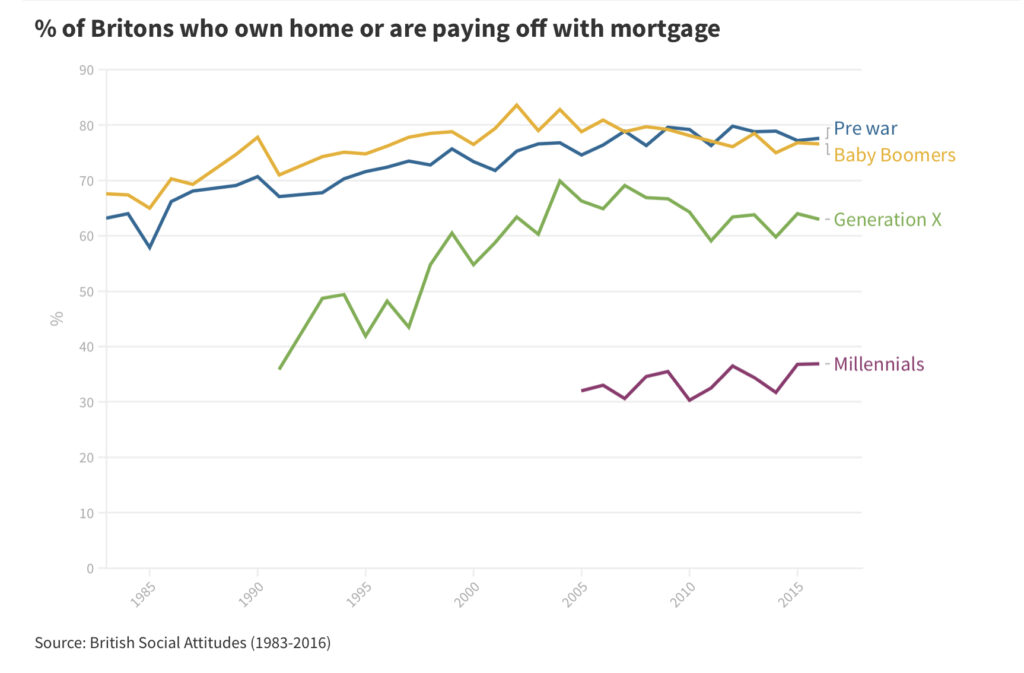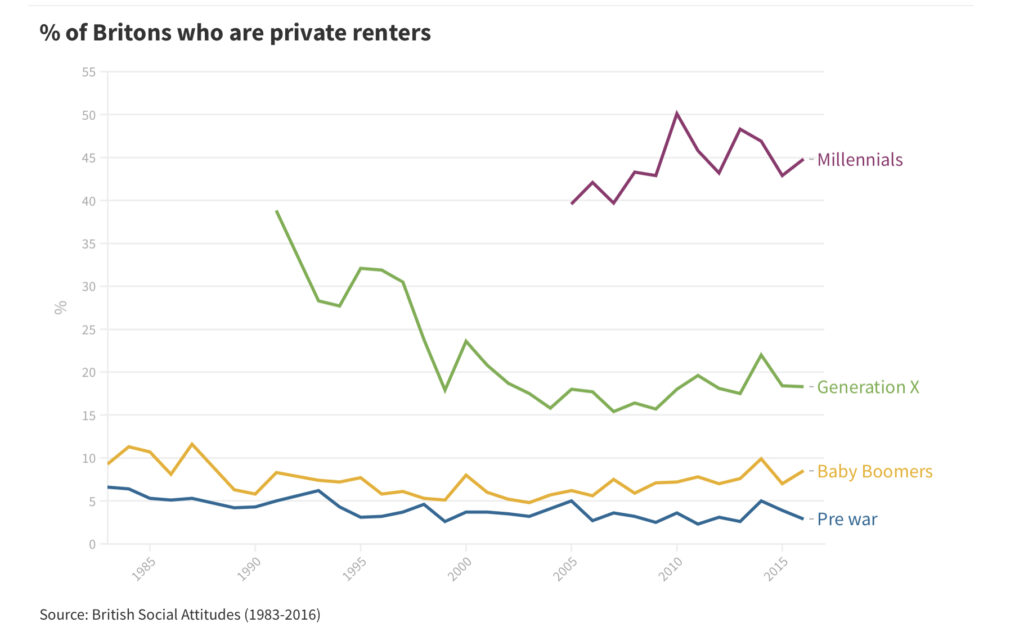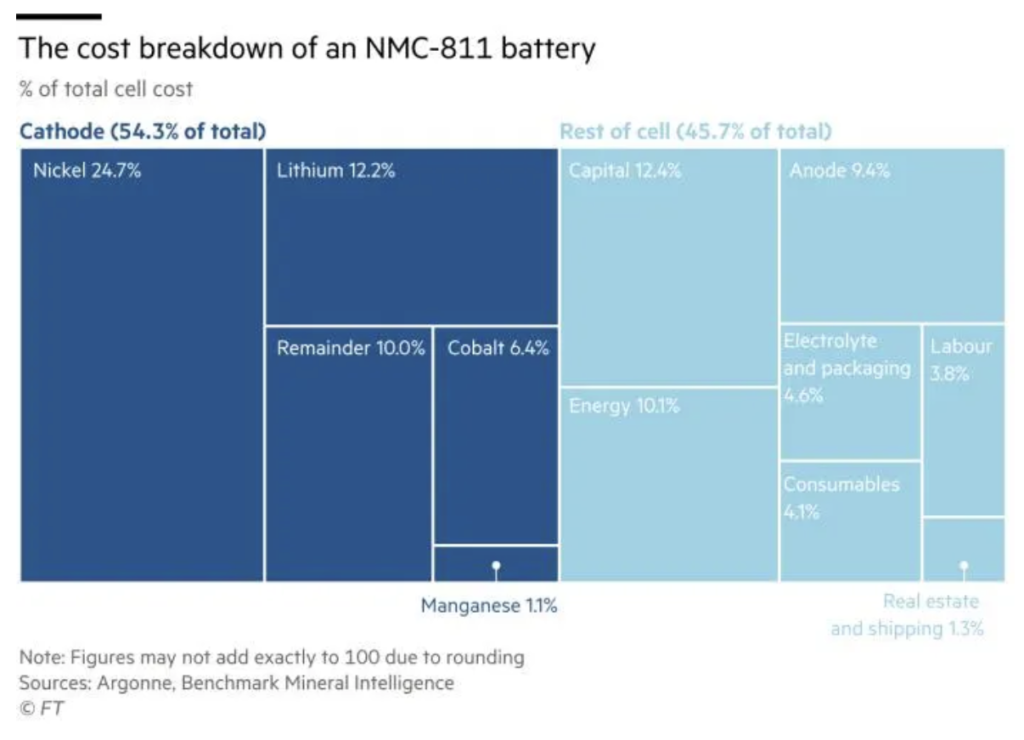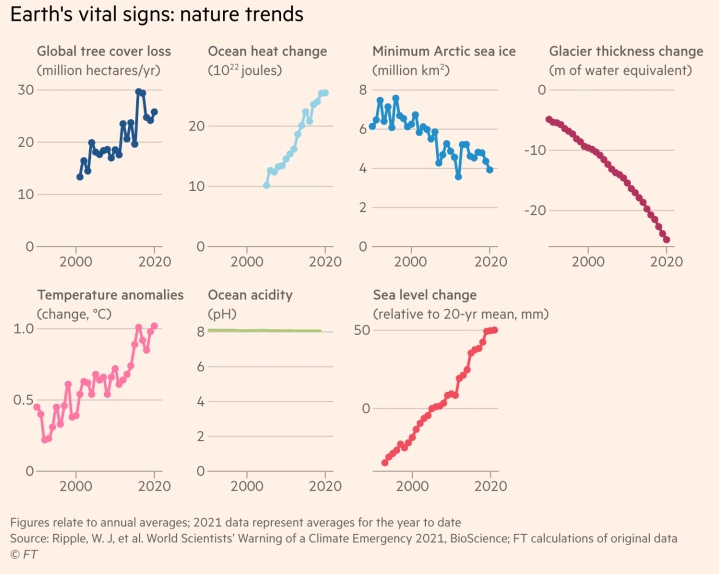Seen on the Interwebby thing.
Quote of the Day
”In my experience, if you have to keep the lavatory door shut by extending your left leg, it’s modern architecture.”
- Nancy Banks-Smith, The Guardian, 1969.
Nancy was the Guardian’s TV critic for many years. I occupied the same post on the The Observer between 1987 and 1995, so was in an excellent position to know how good she was. As a critic she was wonderfully funny, sharp — and occasionally lethal for pretentious performers.
Musical alternative to the morning’s radio news
Samuel Barber | Adagio for Strings, Op.11 | Vienna Philharmonic | Conducted by Gustavo Dudamel with pianist Yuja Wang as soloist | Summer Night Concert 2019
Long Read of the Day
How to curate (just about) anything
Lovely essay by Glenn Anderson about a subject that bothers most of us and obsesses some. Tidying up is a start. But it won’t get you to the kind of lived-in, personalised space that defines an ideal of home.
Double-think about the climate crisis
If you’re optimistic about the political world’s determination to address the crisis, then this piece by Adam Tooze might make you choke on your muesli. Sample:
“Higher gasoline costs, if left unchecked, risk harming the ongoing global recovery. The price of crude oil has been higher than it was at the end of 2019, before the onset of the pandemic. While Opec+ recently agreed to production increases, these increases will not fully offset previous production cuts that Opec+ imposed during the pandemic until well into 2022. At a critical moment in the global recovery, this is simply not enough. President Biden has made clear that he wants Americans to have access to affordable and reliable energy, including at the pump. Although we are not a party to Opec, the United States will always speak to international partners regarding issues of significance that affect our national economic and security affairs, in public and private.”
Yes, you read that correctly. One of the most senior figures in the Biden administration, the administration that promised climate was “everywhere” in its policy, is declaring that an increase in petrol prices to $3.17 per gallon is a matter of national security and that the US reserves the right to cajole Opec and Russia into flooding the world with more oil.
Not to be outdone, the current UK government is allowing oil drillers to keep exploring the North Sea for new reserves, despite its pledge to tackle carbon emissions, as long as they pass a “climate compatibility” test.
Why are CAPTCHA images so depressing?
I hadn’t thought about this. I just find them annoying. But an interesting essay by Clive Thompson finds six reasons why they’re so off-putting:
- They’re generally devoid of humans.
- The angles are all wrong — usually shot from extremely awkward positions and angles that humans would never choose.
- They’re voyeuristic: nobody gave consent for them to be taken.
- They look like crime-scene footage — frequently grainy and badly focused.
- The grids on the photos are an alien’s-eye view of the world.
- There’s very little sign of nature in them. Self-driving vehicles need to recogne things in the built environment — red lights, taxis, cyclists, fire hydrants, pedestrian crossings. They don’t care about trees, or flowers or birds or any of the other sights to which the human eye naturally gravitates.
In other words,
They weren’t taken by humans, and they weren’t taken for humans. They are by AI, for AI. They thus lack any sense of human composition or human audience. They are creations of utterly bloodless industrial logic. Google’s CAPTCHA images demand you to look at the world the way an AI does.
It’s no wonder we wind up feeling so numbed and depressed as we click through them, day in and day out.
Nice, observant piece.
Why is the tech industry so enthused about a dystopian future?
The current faux-excitement in the industry about the ‘Metaverse’ idea floated by Mark Zuckerberg and other techbros is weird. It makes one wonder if any of these enthusiasts have actually read Neal Stephenson’s Snow Crash — which supposedly is the origin of the idea.
Here is an excerpt from Brian Merchant’s splendid blast on the subject:
The hero of Snow Crash is named Hiro, and he is a gig worker delivery driver who moonlights as a hacker, and lives in abject poverty in a 20×30 storage unit he shares with an alcoholic roommate. “Hiro spends a lot of time in the metaverse. It beats the shit out of the U-Stor-It.”
The U.S. as we know it has ceased to exist, and corporate entities and organized crime control whole city-states. Workers like Hiro can be killed for taking too long to deliver a pizza, and they are driven into the metaverse underworld to find extralegal work and enough money to make ends meet. The only reasonably safe places in the physical world are heavily fortressed “burbclaves” where the wealthy reside behind batteries of guns and gated communities.
Or maybe this is the future that the Silicon Valley overlords are really looking forward to. After all, they will be the ones in the burbclaves.
What I’m reminded of most is Heidegger’s observation that “technology is the art of arranging the world so that you don’t have to experience it”.
This blog is also available as a daily newsletter. If you think this might suit you better why not sign up? One email a day, Monday through Friday, delivered to your inbox at 7am UK time. It’s free, and there’s a one-button unsubscribe if you conclude that your inbox is full enough already!













